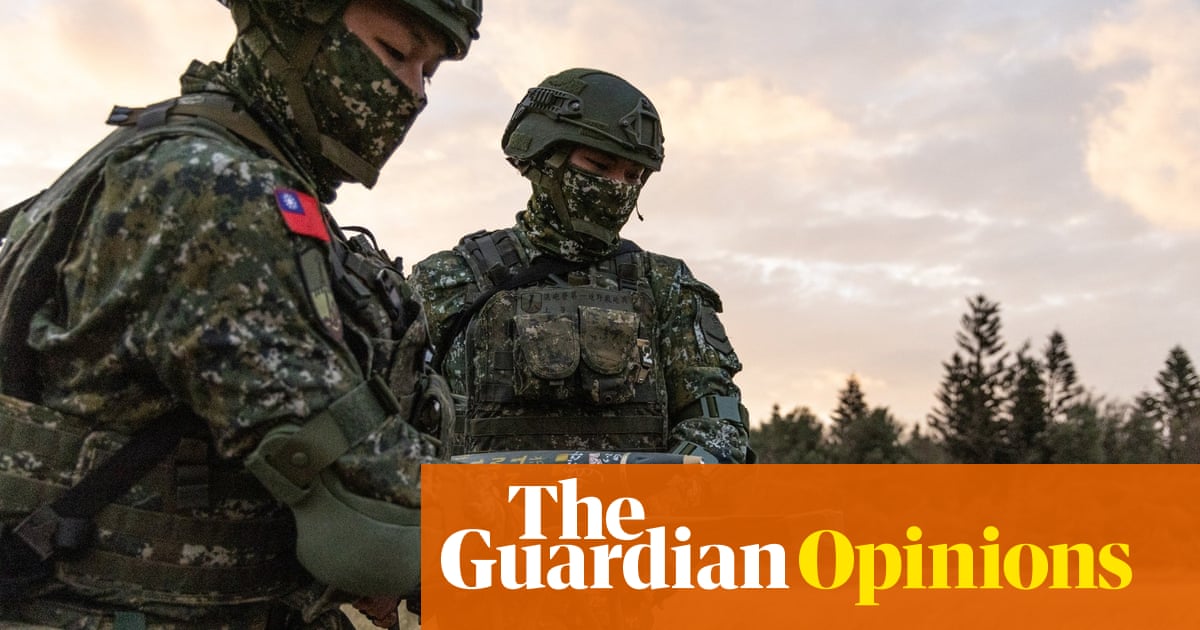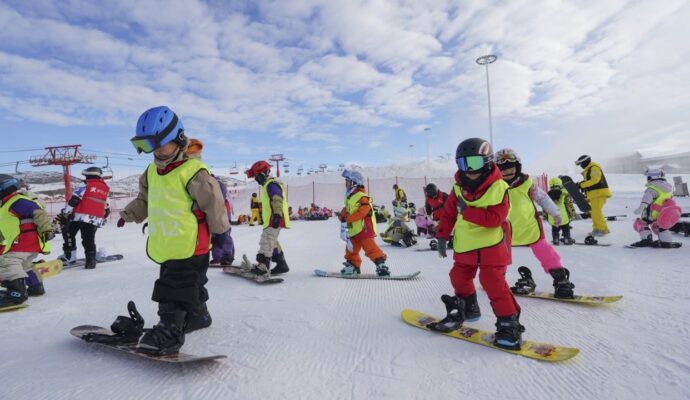
On Tuesday, less than two days after the largest deployment of Chinese military craft into Taiwanese airspace this year, Taiwan’s president, Tsai Ing-wen, announced an extension of military conscription, lengthening the period for men born after 2005 from four months to one year.
It was expected that Tsai would make the announcement before the end of the year, so this was not a direct reaction to China’s most recent military threats. Tsai cited China’s August live-fire exercises around Taiwan, which took place after Nancy Pelosi’s visit to the country. Tsai also brought up the invasion of Ukraine as offering lessons for Taiwan.
China’s attempts to intimidate Taiwan have perhaps had the opposite effect, giving Tsai more leverage to conduct long-discussed military reforms. So, too, with greater international discussion of Taiwan after Russia’s invasion of Ukraine. Yet the extension of the draft could hurt youth support for Tsai’s Democratic Progressive Party (DPP).
In the 24 hours since the announcement, reactions have been divided among young people. Some have criticised the DPP as having failed to consult them before lengthening the draft. Others have defended it as a necessary measure to make China think twice about an invasion, and to serve as a deterrent against a shooting war.
The split in reactions reflects the unusual dilemma of young people in Taiwan. Identity trend polls overwhelmingly show increasing Taiwanese identity and waning Chinese identity. Nevertheless, this has not led to an uptick in enthusiasm for joining the military, even if that could deter the threat of annexation.
The Tsai administration came to power after the 2014 Sunflower movement, a youth-led social movement against a trade bill that the then president, Ma Ying-jeou, and his Kuomintang (KMT) party hoped to sign with China. Since then, Tsai and the DPP have enjoyed support from young people cautious of China, while the historically pro-unification KMT has struggled to win them over – in 2020, the KMT had fewer than 9,000 members under 40.
Generations of Taiwanese men have served as conscripts, usually for between two and three years. Time in the military was seen as a rite of passage for young men, especially during Taiwan’s authoritarian era, as documented in films ranging from New Wave classics such as Hou Hsiao-hsien’s 1986 film Dust in the Wind to more contemporary fare such as Doze Niu’s Paradise in Service (2014). During this period, the KMT ruled Taiwan in a one-party fashion, while the DPP traces its origins to Taiwan’s democracy movement.
The original setting of the draft to four months – down from a year – took place in 2013 during the Ma administration, possibly as a concession to China, during a period in which the KMT was setting aside its historical antagonisms with the CCP and reinventing itself as a party supportive of closer political relations with China. However, the Ma administration’s actions provoked blowback from young people who feared a loss of Taiwan’s democratic freedoms in the form of the Sunflower movement and the rise of a generation of young politicians with China-sceptic platforms.
Yet the Taiwanese military now faces image problems, part of which goes back to its history as the KMT’s enforcer during authoritarian times. And incidents such as the 2013 death of the conscript Hung Chung-Hsiu at the hands of his superiors provoked massive demonstrations and have not helped the military’s image. Likewise, military training is commonly seen as not useful, with many stories of conscripts seeing little firearms training, and instead being made to mop, clean toilets or carry out other menial tasks.
The debate about the necessity of military service reflects the paradoxes that Taiwan has faced for decades. A sword of Damocles has hung over the island for the past 70 years, but there are times when the threat seems quite near and others when it seems quite far. It is not always the case that China is perceived as an immediate and pressing threat; it is often read more as a long-term one.
At the time of August’s live-fire exercises, Taiwan remained calm even as international headlines trumpeted the potential of imminent conflict. So, too, with the more recent drills, in which there was also little domestic reaction. This is not to say that Taiwanese do not react to perceived threats from China, as reflected in the Tsai administration’s sweep to power after the Sunflower movement or reactions to the 2019 protests in Hong Kong. But Taiwan does not always react to threats it may have long since become inured to, which colours the public response to extending the draft.


